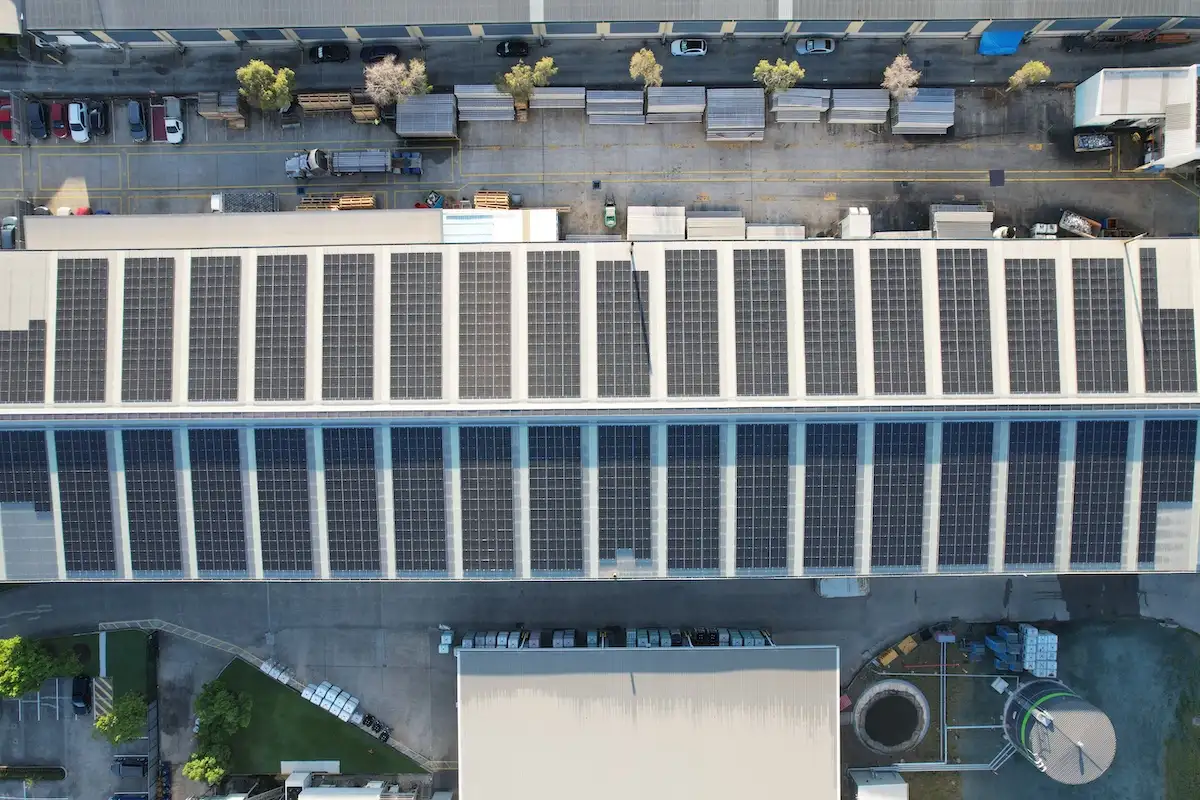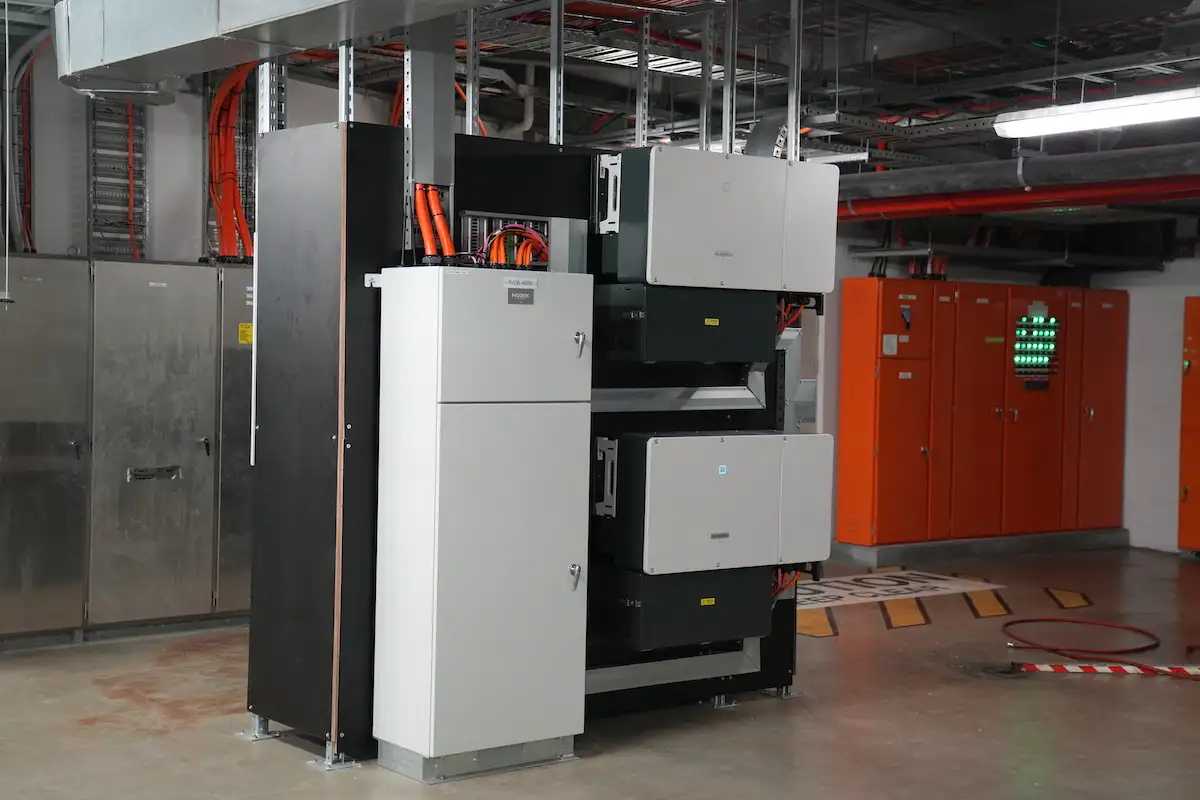How To Choose The Best Solar Inverters For Your System

Before investing in solar panels for your business, it’s crucial to consider all the components needed to keep your system running efficiently—one of the most important being the solar inverter. Choosing the right solar inverter requires careful thought and understanding. To make this process easier, we’ve outlined the various types of solar inverters available and answered some of the most common questions to help guide your decision.
What Are Solar Inverters?
Solar inverters convert direct current (DC) into alternating current (AC). In a solar panel grid system, the solar inverter takes the DC from solar panels and converts it into AC that is dispersed into the electricity circuit in your business.
Types of Solar Inverters
When selecting a solar inverter, it’s essential to understand the different types available, as well as key factors like size, power rating, efficiency, and additional features. The main types of inverters include string inverters, battery inverters, hybrid inverters, and microinverters.
String InvertersString inverters are the most common for both residential and commercial systems. Each inverter is connected to a group of solar panels (strings) and is typically wall-mounted to protect it from the elements. Larger commercial systems may require multiple string inverters to manage higher capacity. These inverters are the most cost-effective, but one drawback is that shading on a single panel can reduce the efficiency of the entire system.
Battery InvertersBattery inverters are designed to convert DC stored in batteries into usable AC power. They allow businesses to add battery storage to an existing system without replacing the original inverter. While they can be a more expensive option, they offer flexibility, particularly for businesses looking to future-proof their solar investment.
Hybrid InvertersHybrid inverters combine the functions of both string and battery inverters, allowing seamless integration of a battery for continuous power, even during blackouts. They are a great option if you plan to install both solar panels and battery storage at the same time. While hybrid inverters come with a higher price tag, their versatility and reliability make them worth considering.
MicroinvertersMicroinverters are installed with each individual panel, ensuring that shading or damage to one panel doesn’t affect the performance of the rest. This is especially useful for systems installed on roofs with different orientations. Microinverters offer greater efficiency, but they come at a higher cost and may require more complex maintenance, as they are installed beneath each panel.

Key Considerations for Businesses Choosing Inverters
Inverter Size and Power RatingEnsure the inverter’s power rating matches or exceeds the combined wattage of your solar panels. This is crucial if your business plans to expand its solar system in the future, as it prevents unexpected upgrades and associated costs.
EfficiencyDS Energy offers high-efficiency inverters with ratings between 98-99 percent. Selecting a high-efficiency inverter ensures that your system converts more solar energy into usable electricity, maximising savings and energy output.
Additional FeaturesConsider what features your business needs. DS Energy provides inverters that offer system monitoring, real-time data, and future storage integration options. These features allow you to keep track of energy usage and improve overall system management.
Design Life and WarrantyThe lifespan and warranty of an inverter are crucial for long-term reliability. DS Energy supplies a wide range of inverters with excellent customer support, long design life, and extensive warranty periods. We also assist businesses in claiming extended warranties, ensuring your solar investment is well-protected.
Determining Solar Inverter Size
When looking at sizes for solar inverters, that will largely depend on the size of your solar panel system. Inverter sizes are rated in kilowatts (kW) and should, at minimum, be able to handle the maximum amount of power generated by your solar panel system. The minimum output capacity of a solar inverter must be at least 75% of the solar array capacity.
Cost and Budgeting for a Solar Inverter
As mentioned above, the cost for solar inverters differs based on type. Here are some financial factors for you to consider before investing in an inverter:
- Compare individual solar inverter costs: Do you want to pay extra for a hybrid inverter or a battery inverter?
- Are you looking to expand your solar panel system?
- What are the maintenance and repair costs associated with the solar inverter? If weather conditions in your area are poor, maybe a microinverter is not a wise choice, given repair costs.
- What financing options are there: Are there solar business loans, grants or rebates available?
Ask Our Solar Experts for More Information
As a business owner, choosing the best solar inverter for your solar panel system is important. If you need assistance making that decision, or require further guidance, our solar experts at DS Energy are happy to help! We also assist with commercial solar panel solutions, as well as guide you on solar panel maintenance. At DS Energy, we also provide a variety of flexible financing options to support your customised solutions, and can advise you on available rebates and grants, ensuring you achieve strong financial returns. We invite you to contact us today.